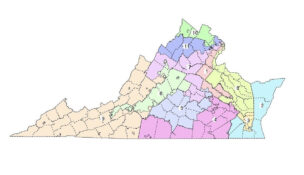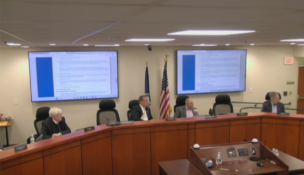Bill advances to limit catch of menhaden
Virginia Business //January 28, 2013//
RICHMOND – Del. Ed Scott (R-Culpeper) is sponsoring legislation that would limit the catch of Atlantic menhaden in Virginia each year.
The bill establishes an annual total catch of 144,272.84 metric tons between the reduction and bait industries.
Reduction industries make fish into fishmeal as food for livestock or into fish oil, which is used in vitamins and lipstick. Bait industries use menhaden or parts of menhaden to catch larger fish or aquatic animals.
The reduction bill is in response to reports by officials at the Atlantic States Marine Fisheries Commission (ASMFC) that the number of menhaden off the coast of Virginia is dwindling.
Scott said his dedication to menhaden conservation is not about his district or his constituents, but a part of his work with the Committee on Agriculture, Chesapeake and Natural Resources.
“As chairman of the Chesapeake subcommittee, I’ve been following the management of menhaden for many years now,” Scott said. “I have been interested in the economic benefit of the seafood industry to the state of Virginia.”
After reading stock reports published by officials at the ASMFC, Scott became concerned about the reduced number of menhaden in the Chesapeake Bay and surrounding area, which he said in his bill was due to companies using menhaden in health supplements and as bait to catch other seafood, such as crabs.
In 2011, James Kirkley of the Virginia Institute of Marine Science wrote in his report, “An Assessment of the Social and Economic Importance of Menhaden in Chesapeake Bay Region,” that the reduction industry had an $88 million economic impact on the Chesapeake Bay region and supplied 519 jobs at the OMEGA Protein factory headquarters in Reedville.
The estuaries of the Chesapeake Bay, where OMEGA Protein fishermen catch most of their menhaden, also serve as a nursery for menhaden larvae, according to the Chesapeake Bay Program. These fish eat the algae in the bay, leading to healthier waters.
The ASFMC has called for a 20 percent reduction this year in the total allowable landings of menhaden during 2009 – 2011. The reduction industry fishermen will be given 90 percent of the allowed catch, Scott said, and the bait sector fishermen will receive the remaining 10 percent in proportion to each industry’s total landings from 2002 – 2011. These numbers are based on assessments by the ASFMC staff, he said.
Secretary of Commerce Sarah Blank could shut down commercial fisheries that do not comply with this reduction.
The bill contains a sunset clause for Jan. 1, 2015. At that time, the House will evaluate the stock reports to determine the mandate’s impact, Scott said.
Scott does not make predictions about bills that he puts before the Assembly members, but he said the proposal had come out of committee uncontested, which was a good sign.
“People see a lot of hard work by the committee, by the marine system, and by the fishing industries, who are willing to adopt a very strong mandate and have stepped up to the plate, even though there is a significant negative economic impact to this bill,” he said.
The bill, HB 2254, which passed from the Agriculture committee with a 21-0-1 vote, was engrossed by the House Thursday in preparation for a final vote.
g


















